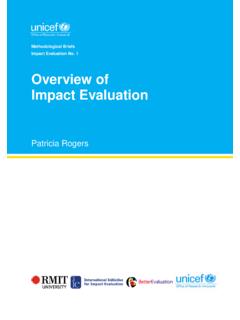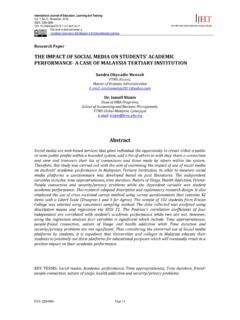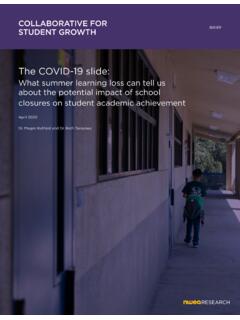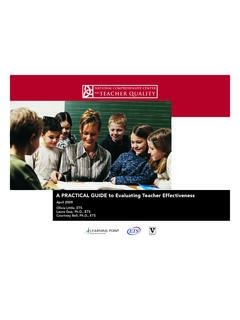Transcription of Sample Research Proposals - Faculty of Arts and Social ...
1 PG Research Prospectus 2008 (DD/ph 18th Feb) 1 Sample Research Proposals You will find here two examples of Proposals for postgraduate Research from the Department of Social Policy and Criminology. They both give good indication of the sorts of things that need to be included. The first, on fathering after divorce or separation, represents first thoughts on the proposed topic, but sets out some clear interests and demonstrates how it will relate for existing debates. The second, which is focused on police governance, represents a fuller proposal that was developed after the student had registered and had spent time with the supervisor working up the ideas and the methodology. It gives you some idea of the level you should aim for (but obviously the better developed a proposal is, the better, regardless of any changes that you may wish to make in discussion with your supervisors after registration).
2 Please include a reference list at the end of every proposal. Research Proposal: Example One Working At It An exploration of the perceptions and experiences of negotiating employment and caring responsibilities of fathers in post-divorce/separation co-parenting situations. Introduction: Despite some thirty years of Social scientific Research into fatherhood and masculinity, and the recent increase in the public and political visibility of fathers, key researchers such as Lamb (2004), Morgan (2002) and Lewis (2000) continue to argue that our understanding of men s experiences as fathers remains limited. There are substantial gaps in our current knowledge about fatherhood (Lewis, 2000). One such gap is in the relative lack of empirical insight into the experiences of working class fathers.
3 In theoretical terms fatherhood is increasingly recognised as complex and dynamic, as an identity and a practice which is played out in a range of Social contexts and which is both enabled and constrained by (often-contradictory) Social institutions and norms. More Research is needed that attempts to chart the processes by which men perceive and negotiate their identity and activity as fathers. In addition, a growing recognition of the importance and reality of post-divorce parenting has focused both academic and political attention on the roles, involvement and identity of fathers after divorce or separation. My Research will contribute to a growing sociology of 'family practice', building on existing fatherhood Research and adding to the insightful and innovative work on post divorce parenting developed by sociologists such as Rosalind Edwards, Simon Duncan, Jane Ribbens McCarthy, Carol Smart and Judith Glover.
4 In different ways such writers have sought to present a more accurate and grounded knowledge of family life together with a critical investigation into both contemporary parenting and, importantly, the Social policy and legal frameworks which surround this. Their Research emphasises the complex, often moral, dilemmas involved in making and re-making families (Ribbens McCarthy, Edwards & Gillies, 2003) and asserts the creativity of family members in such processes. Also offered is an arguably more constructive approach to divorce/separation PG Research Prospectus 2008 (DD/ph 18th Feb) 2 suggesting that it may provide a catalyst for thinking and acting differently about parenting and about gender roles. In this way it could be that divorced/separated fathers, together with many lone-mothers, have the potential (not necessarily by choice) to challenge the enduring gendered model for organising earning and caring, and are therefore sociologically and politically significant.
5 My study seeks to investigate the practice and processes of negotiating employment and caring responsibilities for divorced or separated fathers who have regular physical care of their children. It will focus on the experiences and perceptions of fathers in relation to their roles and identity as fathers, their relationships with their children and their working lives. Research Questions: In the light of the above discussion my work aims to contribute to the process of more accurately documenting what families and family members actually 'do' as a basis for more appropriate and egalitarian Social policy and to offer an analysis of the experiences and practice of post-divorce/separation fatherhood. Broadly, my Research questions will be organised to investigate three main areas: 1.
6 Fathering work: How do fathers describe and experience the work of being a father after divorce/separation? What aspects of their roles and relationships with their children generate satisfaction or dissatisfaction? How does post-divorce fatherhood compare with pre-divorce experience? These questions will involve an engagement with, and evaluation of, current Research on fatherhood and on post-divorce parenting. 2. Role adaption/perception: How do fathers negotiate and manage carrying out the work of fatherhood after divorce/separation and what are the factors influencing such negotiations? To what extent do such processes involve questions of moral identity, rationalisation or presentation? These questions will involve a consideration and application of theoretical and moral philosophical literature on gender, rationality, and ethics.
7 3. Orientation to Paid Employment: To what extent and in what ways do men negotiate their orientation to paid employment alongside their position as fathers? Is divorce or separation a catalyst for thinking/acting differently about combining paid employment and unpaid caring work? These questions will require consideration of the impact of differing occupational positions of men together with an examination of the range of sociological and non-sociological literature on 'life-work balance'. Data Collection: Because insight into post-divorce/separation fatherhood is limited and because of a commitment to a grounded approach to knowledge production in policy-relevant areas, my Research will be inductive and iterative. It will consist predominantly of individual semi-structured interviews with fathers in post-divorce/separation situations, in a range of PG Research Prospectus 2008 (DD/ph 18th Feb) 3 occupations, who have regular physical care of their children.
8 It will also involve more ethnographic methods, such as participant observation, informal group discussion and reflexive interviewing, as a mechanism to disseminate information about, and generate interest in, the Research . An ethnographic approach offers particular opportunities to get close to fatherhood as a routine activity and as an aspect of identity, and could provide the tools to explore father s perspectives in some of the contexts in which they are lived. My Sample will only include fathers who have been divorced/separated for at least one year, in order to be attentive to the emotional distress involved in adjustment to post-divorce roles (Madden-Derdich & Leonard, 2000). Occupation, organisational culture and employment status will also be key variables in order to explore orientation to work, father identity and levels of control over organising earning and caring responsibilities.
9 There will be a specific focus on self-employment as it applies to a wide range of occupations, with arguably different (gendered) organisational cultures, and may present particular constraints or flexibility for working life. Overall I will be developing a theoretical Sample from the geographical region of East Anglia There are a number of possible contexts for obtaining participants for this Research . I intend to approach a range of organisations/places of work formally, but also to try and develop a snowball Sample through work-related or informal contacts. This may allow me to engage fathers via Social or leisure settings. This strategy, in itself, I feel would be revealing in terms of the extent to which fatherhood is experienced or negotiated between men's own Social and contextual networks.
10 I have also established some initial contacts with Fathers Workers in agencies such as Sure Start which are likely to be particularly helpful in reaching working class fathers. Data Analysis: In general terms, the three main Research questions will provide an important analytical framework for studying the data collected. This will entail exploring the structural, cultural and subjective dimensions and implications of the interview material. Given that my Research is largely exploratory and is committed to an inductive approach, the data analysis will require an open and reflexive engagement with existing literature in order to allow for the emergence of concepts or participant terms, rather than a theory-testing strategy. My analytic approach then, will involve many of the processes described as grounded theorising (Glaser & Strauss, 1967).






